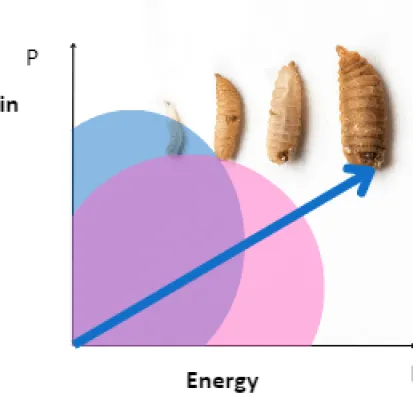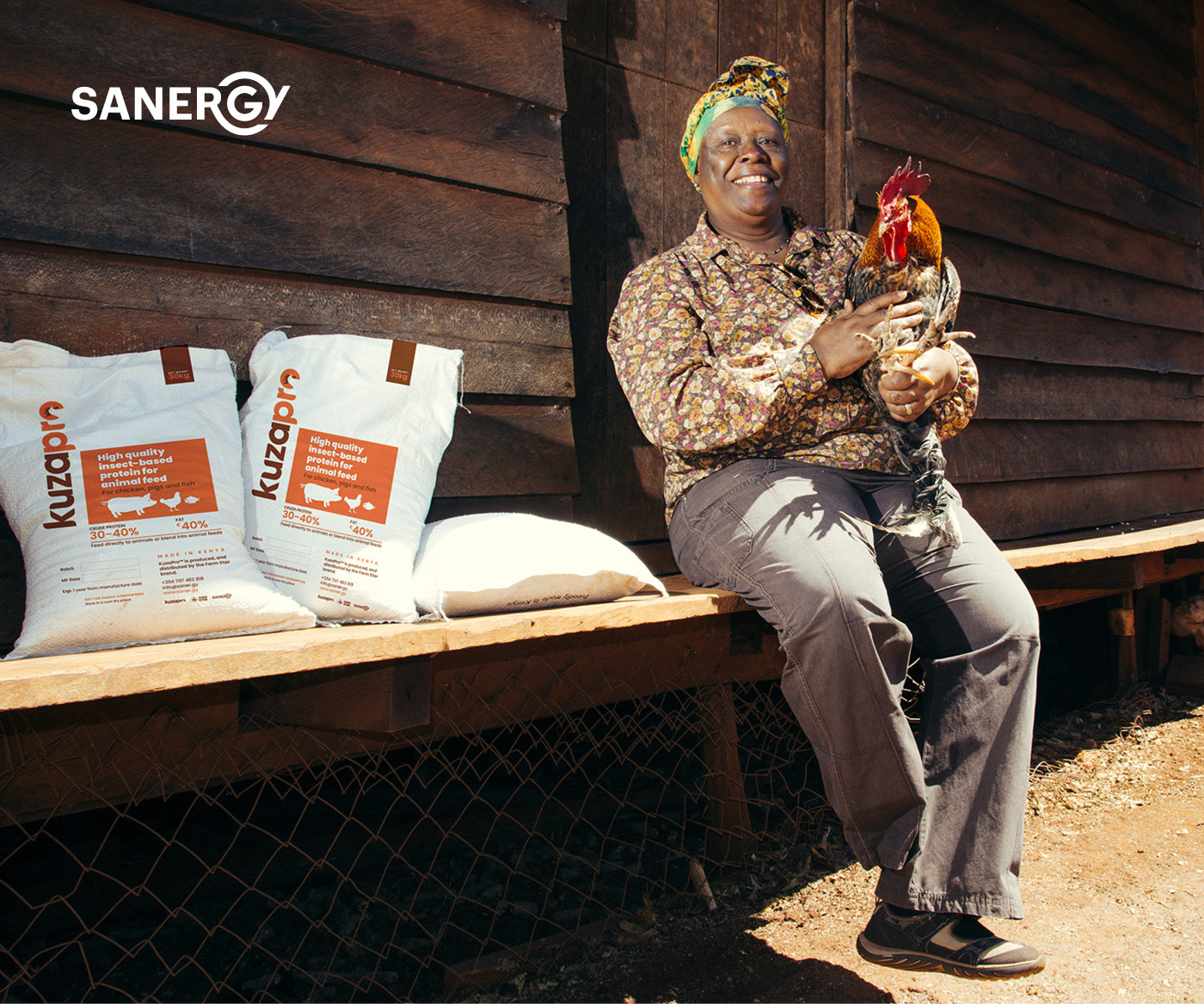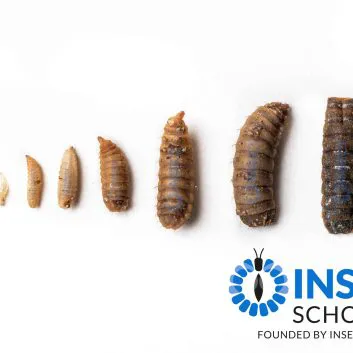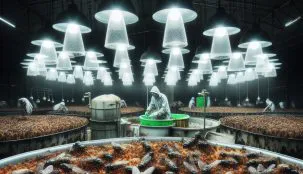Protein and Carbohydrate Ratio for Black Soldier Fly
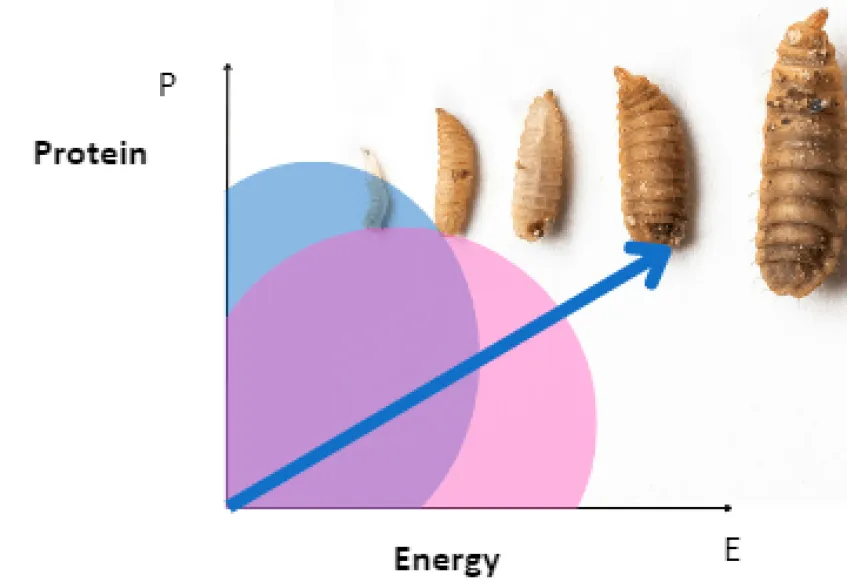
Protein and carbohydrate are seen as the two most important nutrients to support insect performance and development, especially for species with non-feeding adult stage, such as Black Soldier Fly.
Proteins play an essential role in insect growth and metabolism, for example as building blocks for enzymes and hormones.
Carbohydrates are the main dietary energy source, they can also function as backbones for certain amino acids and as building blocks to produce chitin, a structural polysaccharide present in the exoskeleton.
To formulate an ideal production (rearing) substrate for BSF, both optimal protein and carbohydrate contents, as well as their optimal ratio need to be quantified.
In addition to the protein-carbohydrate ratio, the protein-energy ratio needs to be balanced to ensure that dietary protein is used for growth rather than for energy production, which ends up with urea or uric acid further converting to ammonia emissions.
P.S. When knowing the total energy (so far, merely gross energy) content of larval substrate, and knowing the amount of Black Soldier Fly larvae in the substrate, we can calculate energy-feeding-rate (e.g., MJ/larvae), a quantified quality parameter for modeling BSF production.






